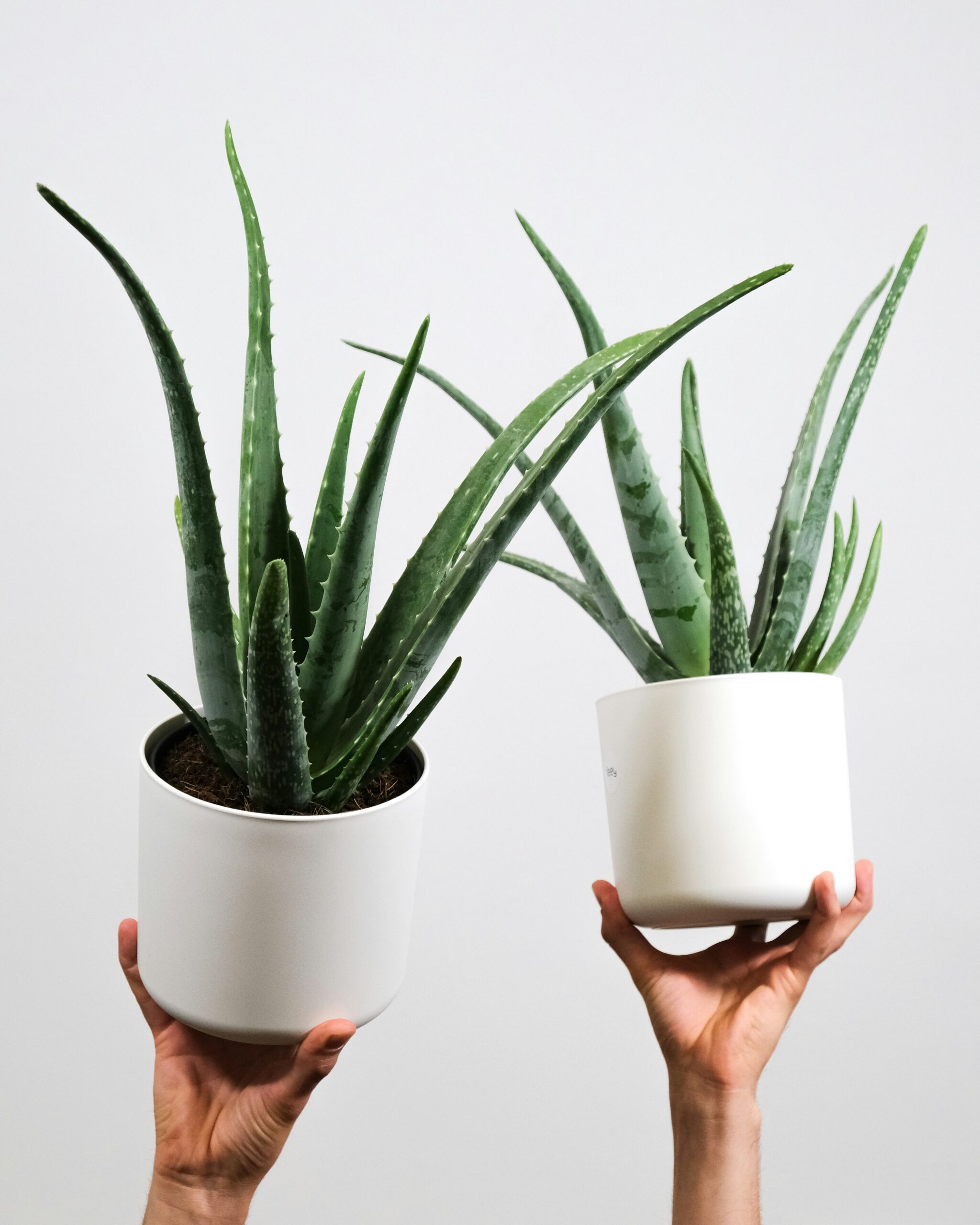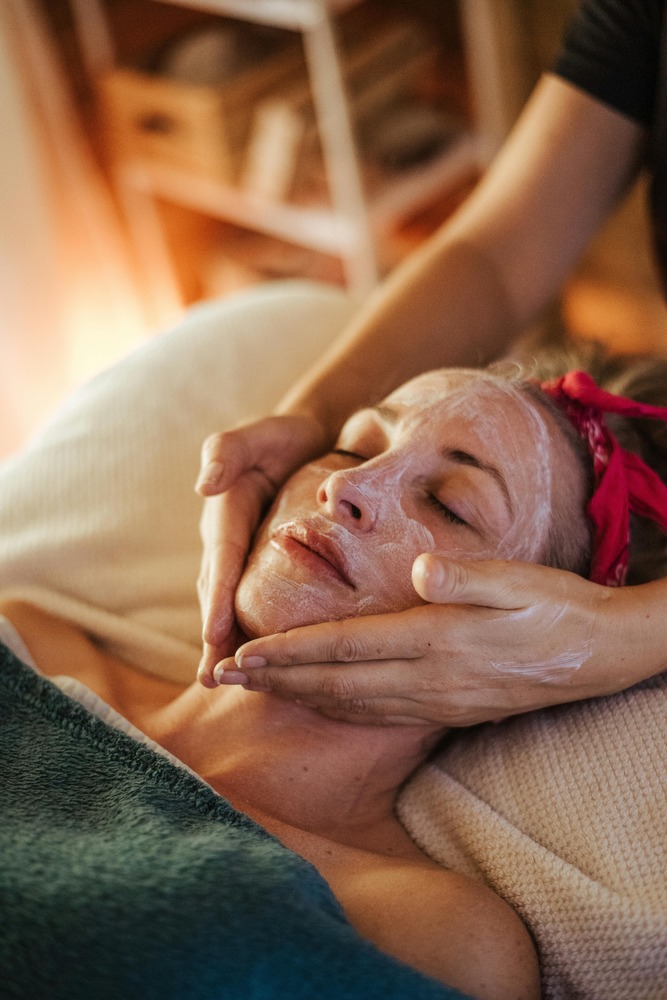Aloe vera, often dubbed the “plant of immortality” by ancient civilizations, has been a staple in skincare for centuries. This succulent plant, known for its soothing and healing properties, has become a cornerstone in modern skincare routines.
From sunburn relief to anti-aging benefits, aloe vera offers a myriad of advantages for the skin. In this article, we will explore the history of aloe vera, its key components, the science behind its skincare benefits, and practical ways to incorporate it into your routine.
The Plant Of Immortality
Aloe vera is a succulent plant that belongs to the Liliaceae family. It has been revered for its medicinal properties for over 6,000 years, with evidence of its use in ancient Egypt, Greece, and India. Today, aloe vera is widely recognized for its role in skincare, offering a natural solution to a variety of skin concerns. This article aims to provide a detailed overview of aloe vera’s benefits for the skin, backed by scientific research and practical tips for use.
Historical Use of Aloe Vera in Skincare
The use of aloe vera in skincare can be traced back to ancient Egypt. The Egyptians used it for both cosmetic and medicinal purposes, applying it to wounds, burns, and even using it in their embalming practices. Cleopatra, known for her beauty, was said to use aloe vera in her daily skincare routine.
In ancient Greece, aloe vera was used to treat wounds and prevent infections. The Greeks believed that the plant could help heal wounds faster and keep the skin youthful. Similarly, in India, aloe vera was incorporated into Ayurvedic medicine, where it was used to balance the body’s doshas and treat skin ailments.
Key Components of Aloe Vera
Aloe vera’s skincare benefits are primarily attributed to its rich composition of active compounds. The gel inside the leaves contains over 75 active ingredients, including:
- Vitamins: Aloe vera is rich in vitamins A, C, and E, all of which are known for their antioxidant properties. These vitamins help protect the skin from free radical damage, which can lead to premature aging.
- Enzymes: Aloe vera contains enzymes such as amylase and lipase, which can help break down fats and sugars, promoting smoother skin.
- Minerals: The plant is packed with essential minerals like calcium, magnesium, and zinc, which are important for maintaining healthy skin.
- Amino Acids: Aloe vera contains 20 of the 22 human-required amino acids, including seven of the eight essential ones. These amino acids help nourish and regenerate the skin.
- Polysaccharides: These long-chain sugars contribute to aloe vera’s hydrating and anti-inflammatory properties. They also help in repairing damaged skin and enhancing its elasticity.
- Anthraquinones: Compounds like aloin and emodin have antiviral and antibacterial effects, contributing to the plant’s ability to heal wounds and treat infections.
Benefits of Aloe Vera for the Skin
4.1. Hydration and Moisturization
One of the most well-known benefits of aloe vera is its ability to deeply hydrate the skin. The plant’s high water content (approximately 99%) makes it an excellent moisturizer. Aloe vera gel absorbs easily into the skin, making it ideal for oily and combination skin types. Unlike heavy creams, it doesn’t leave a greasy residue, making it a popular choice for those seeking lightweight hydration.
Aloe vera’s polysaccharides help to lock in moisture, creating a protective barrier on the skin’s surface. This barrier not only keeps the skin hydrated but also helps to prevent trans-epidermal water loss (TEWL), which can lead to dryness and irritation.
4.2. Healing and Soothing Properties
Aloe vera is renowned for its soothing properties, particularly in treating sunburns and minor burns. The plant’s gel has a cooling effect when applied to the skin, providing instant relief from irritation and redness. This is due to its anti-inflammatory compounds, such as glycoproteins, which help to reduce swelling and pain.
Studies have shown that aloe vera can accelerate the healing process of wounds by promoting the production of collagen, a protein essential for skin repair. This makes it an effective treatment for cuts, scrapes, and even surgical wounds.
4.3. Anti-inflammatory Effects
Inflammation is a common underlying factor in many skin conditions, including acne, eczema, and psoriasis. Aloe vera’s anti-inflammatory properties make it a valuable ingredient in treating these conditions. The plant’s ability to reduce inflammation is attributed to its bradykinase enzyme, which helps to reduce excessive inflammation when applied topically.
Moreover, aloe vera’s high content of vitamins and antioxidants further helps to combat inflammation by neutralizing free radicals that can exacerbate inflammatory conditions.
4.4. Anti-aging Benefits
Aloe vera’s antioxidant-rich composition plays a significant role in fighting the signs of aging. The vitamins C and E found in the plant help to protect the skin from oxidative stress caused by environmental factors like UV radiation and pollution. This protection is crucial in preventing the breakdown of collagen and elastin, which are responsible for maintaining the skin’s firmness and elasticity.
Additionally, aloe vera’s ability to stimulate collagen production helps to reduce the appearance of fine lines and wrinkles. Regular use of aloe vera can result in smoother, more youthful-looking skin.
4.5. Acne Treatment
Aloe vera is a popular ingredient in acne treatment due to its antibacterial and anti-inflammatory properties. The anthraquinones in aloe vera, such as aloin and emodin, have been shown to inhibit the growth of acne-causing bacteria. Additionally, the plant’s ability to reduce inflammation helps to soothe irritated skin and minimize the appearance of acne scars.
Aloe vera also contains salicylic acid, a well-known acne-fighting ingredient that helps to unclog pores and prevent the formation of new breakouts. Its gentle exfoliating properties can help to remove dead skin cells, further reducing the risk of acne.
Incorporating Aloe Vera into Your Skincare Routine
5.1. Aloe Vera Gel
The most direct way to incorporate aloe vera into your skincare routine is by using pure aloe vera gel. You can extract the gel directly from the leaves of an aloe vera plant or purchase it in a pre-packaged form. When applying aloe vera gel, make sure to use it on clean skin to maximize absorption. It can be used as a standalone moisturizer or layered under other skincare products for added hydration.
For best results, look for products that contain at least 90-99% pure aloe vera gel. Some commercial products may contain added preservatives, fragrances, or other ingredients that could irritate sensitive skin.
5.2. Aloe Vera in Commercial Products
Aloe vera is a common ingredient in many commercial skincare products, including moisturizers, cleansers, toners, and masks. These products often combine aloe vera with other beneficial ingredients to target specific skin concerns. For example, aloe vera-infused moisturizers may also contain hyaluronic acid for extra hydration, while aloe vera cleansers might be formulated with salicylic acid to help fight acne.
When choosing aloe vera products, it’s essential to consider your skin type and the specific needs of your skin. For instance, those with dry skin might benefit from a rich aloe vera cream, while those with oily skin might prefer a lightweight aloe vera gel or toner.
DIY Aloe Vera Masks and Treatments
If you prefer a more natural approach to skincare, you can create your own aloe vera masks and treatments at home. Here are a few simple recipes:
- Aloe Vera and Honey Hydrating Mask: Mix two tablespoons of aloe vera gel with one tablespoon of honey. Apply the mixture to your face and leave it on for 15-20 minutes before rinsing off. This mask is excellent for hydrating and soothing dry, irritated skin.
- Aloe Vera and Turmeric Anti-Acne Mask: Combine one tablespoon of aloe vera gel with a pinch of turmeric powder and a few drops of rose water. Apply the mask to your face, focusing on areas with acne. Leave it on for 10-15 minutes before rinsing off. Turmeric’s anti-inflammatory properties complement aloe vera’s acne-fighting abilities.
- Aloe Vera and Cucumber Cooling Mask: Blend half a cucumber with two tablespoons of aloe vera gel. Apply the mixture to your face and leave it on for 20 minutes. This mask is perfect for calming sunburned or irritated skin.
Potential Side Effects and Precautions
While aloe vera is generally safe for most skin types, some individuals may experience allergic reactions or irritation. Before using aloe vera on your face, it’s a good idea to perform a patch test by applying a small amount of the gel to the inside of your wrist or elbow. If you experience redness, itching, or swelling within 24 hours, it’s best to avoid using aloe vera on your skin.
It’s also important to note that not all aloe vera products are created equal. Some commercial products may contain added ingredients that can irritate sensitive skin. Always check the ingredient list and opt for products that contain a high percentage of pure aloe vera.
Pregnant or breastfeeding women should consult with their healthcare provider before using aloe vera, as some studies suggest that ingesting aloe vera could have adverse effects during pregnancy.
Conclusion
Aloe vera is a versatile and powerful skincare ingredient that offers a wide range of benefits, from hydration and soothing to anti-aging and acne treatment.
Whether you use pure aloe vera gel, incorporate it into your skincare routine through commercial products, or create your own DIY masks, aloe vera can help you achieve healthier, more radiant skin.




